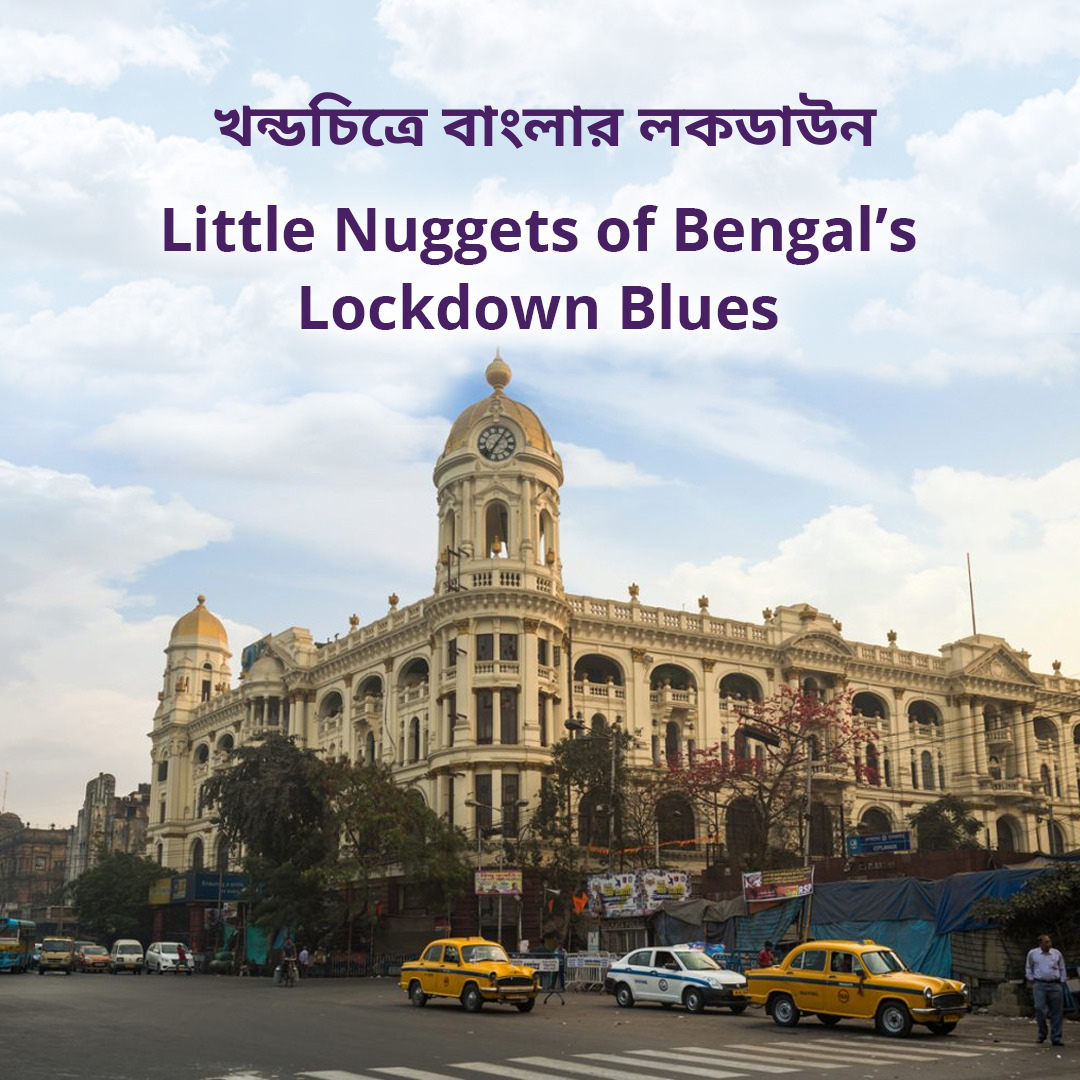
Blog

 Monday June 14, 2021
Monday June 14, 2021
Exploring Neo Normal: Bengal’s tryst with Corona lockdowns
Sleeping with laptops, lunch over con-calls, kids online whole day, sanitizer bottles everywhere, afternoon siesta and so on, the list seems countless. Days out in neo normal seems abnormal to many, but the human species has always adapted to challenging circumstances, slowly the mood of acceptance prevails over defiance, and life goes on.
Median recently studied the effects of these life changing lockdowns with a study in Bengal. We considered six perspectives to explore the mood of Urban & Rural populace among NCCS B, C & D segments.
- What lockdown means
- State of Mind during lockdown
- Aspirations & concerns
- Wish to do during lockdown
- Changes they want
The survey was done with more than 250 respondents all across Bengal to gauge their mood during the second phase of Lockdown in the State. The respondents were all in the 18-50 years age group and spread across varying occupations: including students and teachers, professionals and homemakers, business personnel and social workers. Men and women, staying in both urban and rural neighborhoods of the state recorded their thoughts, emotions, hopes and fears with respect to the pandemic situation through their responses.

The predominant emotions that the survey captures among its sample space are highlighted below:
- a reigning sense of anxiety and insecurity. Loss of jobs has been rampant since the first Lockdown, and the second blow has been detrimental to the prospect of sustained income for salaried professionals, business persons and entrepreneurs alike.
- The concern about livelihood has been escalated by the worry of staying safe and the fear of falling prey to the virus and/or losing near and dear ones.
- Hence, while blaming the Lockdown for financial inconveniences, most respondents also agree that the Lockdown was necessary in trying to curb the spread of the virus by breaking the chain of infection.
- To most respondents, the Lockdown presents a dilemma between securing finance and preserving health, mostly since both are inextricably linked. Many insist that the Lockdown should have been implemented much earlier, when the first hint of a prospective and more devastating second wave had presented itself.
- However, almost all respondents have recorded their concern and dissatisfaction about the way the Lockdown has affected the poorer sections of the society – people surviving on unorganized labour and daily wages. They assert that provisions should have been made for such people before imposing the Lockdown so they could follow the protocols willingly without having to worry about their next meal.
- This, along with the habitual disregard for following rules in many people, have helped the spread of the virus more than it should have, since people could not be bothered with staying in or covering up when they had to go to greater lengths than ever to secure basic necessities like food.
- Overall scores across rural-urban barriers are fairly optimistic. Bengal through its years of turmoil in socio-political arena might have given them enough strength to be positive even during lockdown and related uncertainties. 55% of our sample populace showed optimism under lockdown, but they are overwhelmingly concerned (90%).
Surprisingly 75% of them feel happy under second wave lockdown. This probably shows the undying flow of life through lively cultural ethos in this part of the country.

Overall people are concerned with the situation. People with service background are concerned with their job insecurity, health and family well being. Parents are concerned about the state of education. Online studies are new experience and people are still skeptic about it.
We have also explored people’s aspirations during this period. Even under election cloud, political uncertainty and downturn economy, people felt that all inclusive Bengali culture will pass through tis test of time.
While respondents record a homogenously negative reaction to questions on the state of education and health, there is a marked segmentation in their sentiments in terms of future scenario. While many cannot go beyond the direness of the present to visualize a worry-less future, many others are optimistic about a Covid-free time when life would be back to the old-normal, people would be free to pursue their regular lifestyle and health concerns would be nothing but the ordinary. The pessimists among the respondents complain that education and career opportunities have been ruined for this generation of children. The optimists plan about the next trip they would take after the country heals or the next friends-meet they would arrange after the Lockdown is lifted.
Business persons are concerned with growing family expenses, whereas service holders are insecure with their jobs. But self employed seemed to have suffered the most. Housewives are concerned with ration and children’s education, more so in the rural areas.
Many have taken this lockdown to explore their passion. Bogged with pressing working hours, they hardly ever followed their inner callings in life. This lockdown has given them that ‘me’ time to explore their likings. People are glued to films, soaps, sports on GECs. Many are ordering books on e-services.
Overall Observations
Almost all have a sense of fear and insecurity, which is the reigning emotion at the moment. Almost all families have suffered financially. And health is a prime concern
For the younger population, mobile phones are primary areas of engagement during their spare time, for older generation it is still a useful tool of communication. Reading and listening to music figure heavily irrespective of age, as does the trend of cooking up experimental dishes. Video-calling is a common resort to catch up with friends.
A very big proportion of the populace miss the outdoor. Family trips, common among Bengali families are missed across the age group.
For the younger, it is about a sense of captivity and uncertainty of pay-cuts and loss of jobs. For the older, it is mostly about the fear of loss of livelihood and the state of children’s education. However, most believe the Lockdown would serve its purpose in checking the spread of the virus. Some mention they enjoy spending the extra time with family.
Thus, as a conclusive statement, one can say that the people of Bengal are scared, resentful, anxious yet somehow hopeful of a covid-free future, where they can enjoy the better aspects of their so-called “old-normal” lives again.












